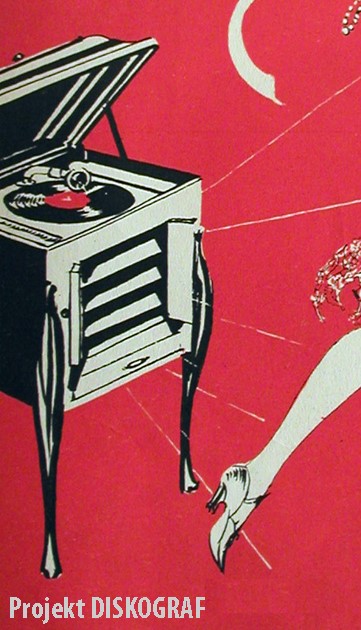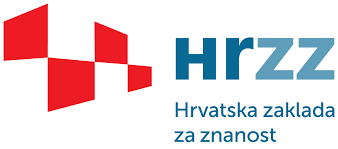Objavljen program i knjižica međunarodnog simpozija “78 ok./min. kod kuće” (8-11. ožujka 2023., Zagreb)

Međunarodni simpozij 78 okretaja u min. kod kuće: Lokalne perspektive u ranoj diskografskoj industriji održat će se na Muzičkoj akademiji u Zagrebu te virtualno, putem platforme Zoom. Bogati program od ukupno 12 sesija počinje u srijedu, 8. ožujka, a završava u subotu 11. ožujka.
Službeni jezik simpozija je engleski.
Više o simpoziju saznajte i njegovim temama, lokaciji simpozija, transportu po Zagrebu i preporukama gastro ponude u blizini lokacije saznajte ovdje.
Knjižicu simpozija preuzmite ovdje.
U nastavku je program četverodnevnog simpozija (preuzmi program):
Wednesday, 8 March 2023
10:30–11:30 Opening (SANJA KIŠ ŽUVELA, vice dean, Academy of Music; TVRTKO ZEBEC, assistant director, Institute of Ethnology and Folklore Research; NAILA CERIBAŠIĆ, chair of the programme committee; members of the organizing committee)
11:30–13 Keynote address (onsite): MARK KATZ (University of North Carolina at Chapel Hill). Seven or eight ways of thinking about the 78-rpm record
13–14:30 Lunch break
14:30–16:30 Session 1: PANEL (onsite): Colonial and post-colonial dynamics in the music industry: The case of early commercial recordings production in Portugal, Brazil, Mozambique and Goa; chair SUSANA SARDO
PEDRO ARAGÃO (Universidade de Aveiro/ INET-md). Casa Edison and the Brazilian early commercial recordings: Transatlantic musical flows in 78 rpm shellac discs phonograms
SUSANA SARDO & JOSÉ MOÇAS (Universidade de Aveiro/INET-md). “A Bem da Nação” – the double label of the first Portuguese commercial recordings in colonial and dictatorship times
NALINI ELVINO DE SOUSA & SUSANA SARDO (Universidade de Aveiro/INET-md). The lost discs: Reconstructing the Goa All India Radio archive through listening memories 3
CRISTIANO TSOPE (Universidade de Aveiro/ INET-md). Early gramophone records from Mozambique: The case of the Radio Mozambique sound archive
16:30–17 Coffee/tea break
17–18:30 Session 2 (onsite & online); chair INJA STANOVIĆ
17–17:30 IVANA VESIĆ (Institute of Musicology, Serbian Academy of Sciences and Arts, Belgrade). From gramophone records to mass audience: Film schlagers and popular songs and dances in Radio Belgrade programming (1929–1941) (online)
17:30–18 JELKA VUKOBRATOVIĆ (Department of Musicology, Academy of Music, Zagreb). The treatment of foreign popular music in Yugoslav record production during the 1950s (onsite)
18–18:30 WICTOR JOHANSSON (The Centre for Swedish Folk Music and Jazz Research, Stockholm). Avanti and the Swedish Communist Youth League: The recording industry as a tool for producing and selling political ideology (onsite)
Thursday, 9 March 2023
9:30-11 Session 3 (online); chair MOJCA PIŠKOR
9:30–10 TAN SOOI BENG (Universiti Sains Malaysia, Penang). Decolonizing sonic historiography through the study of 78 rpm recordings
10–10:30 SAMANTHA OWENS (Victoria University of Wellington – Te Herenga Waka). “To us … the gramophone means much”: Community building through phonog raph records in Aotearoa New Zealand during the 1920s and 1930s
10:30–11 DON NILES & BRUNO TENAKANAI (Institute of Papua New Guinea Studies, Port Moresby). From cylinders to discs to cassettes: On the road to a commercial recording industry in Papua New Guinea
11–11:30 Coffee/tea break
11:30–13 Session 4, PANEL (onsite): Localizing the “talking machine”: The early spoken-word recording in regional perspective; chair PATRICK FEASTER
WILL PRENTICE (Phonogrammarchiv of the Austrian Academy of Sciences, Vienna). Let’s talk about taste
PATRICK FEASTER (First Sounds initiative, firstsounds.org). Phonographic speech in cross-cultural comparison
XIAOSHI WEI (School of Oriental and African Studies, University of London). Literati languages on the Möllendorff cylinders in 1899
13–14:30 Lunch break
14:30–16:30 Session 5 (onsite & online); chair JOŠKO ĆALETA
14:30–15 FRANZ LECHLEITNER (emeritus, Phonogrammarchiv of the Austrian Academy of Sciences, Vienna). Early commercial recording activities in their European context (onsite)
15–15:30 FERENC JÁNOS SZABÓ (Institute for Musicology RCH ELKH, and Liszt Academy, Budapest). (Inter)national recording histories of Central Europe (onsite)
15:30–16 TRAYCE ARSSOW (independent researcher, Skopje). Edison Bell’s triangular record in South-Eastern Europe: Paul Voigt’s electrical recording expeditions in Yugoslavia, Hungary, and Romania, 1927–1929 (online)
16–16:30 DAVID D. POKRAJAC (Faculty of Sciences and Mathematics, Niš) & SAŠA SPASOJEVIĆ (independent researcher, Belgrade). Phonograph records of Mijat Mijatović on Radio Belgrade programmes 1930–1933 (online)
16:30–17 Coffee/tea break
17–18 Session 6 (onsite & online); chair TANJA HALUŽAN
17–17:30 TARA BROWNER (The University of California, Los Angeles). The relationship between technology and repertory at the dawn of the acoustic era (online)
17:30–18 INJA STANOVIĆ (University of Surrey). The Disque Chantal 2022: New takes on the old machines (onsite)
19:00 Joint dinner for participants (Stari fijaker, Mesnička 6)
Friday, 10 March 2023
9:30–11 Session 7 (onsite); chair JELKA VUKOBRATOVIĆ
9:30–10 DAMIR IMAMOVIĆ (independent researcher and artist, Sarajevo). Local perception of the early recorded Bosnian music
10–10:30 ЈЕLENA JOKOVIĆ (PhD candidate, Department of Ethnomusicology, Faculty of Music, Belgrade). Comparative ethnomusicological analysis of orchestral per formances of folk songs: Case study of the songs “Jedna cura mala” and “Kad sam bio mlađan lovac ja”
10:30–11 JOŠKO ĆALETA (Institute of Ethnology and Folklore Research, Zagreb). 101 Dalmatinska – Jugoton releases of Dalmatian (popular) songs as a forerunner of the organized klapa singing movement
11–11:30 Coffee/tea break
11:30–12:30 Session 8 (onsite & online); chair ŽELJKA RADOVINOVIĆ
11:30–12 DANKA LAJIĆ MIHAJLOVIĆ & BOJANA RADOVANOVIĆ (Institute of Musicology, Serbian Academy of Sciences and Arts, Belgrade). The “Mijatovke” collection on 78 rpm records: Early recordings as contributors in the formation of national culture (onsite)
12–12:30 NATAŠA MARJANOVIĆ (Institute of Musicology, Serbian Academy of Sciences and Arts, Belgrade). The contribution of Edison Bell Penkala to presentation and preservation of church music tradition: The Conservatory of Serbian Orthodox Church Chant (online)
12:30–14 Lunch break
14:00–16:00 Musical walk through the Upper Town, led by Nada Bezić (Croatian Music Institute)
16:00–18:00 Session 9 (onsite & online); chair MARCIA OSTASHEWSKI
16–16:30 FILOMENA LATORRE, ANGELO POMPILIO & MADDALENA ROVERSI (Università di Bologna). Issues in managing a record collection: A case study of the Toffalori and Benedetti collections at the Depar tment of Cultural Heritage of the University of Bologna (onsite)
16:30–17 MARTIN MEJZR, MICHAL STUDNIČNÝ & FILIP ŠÍR (National Museum, Prague). Marketing the early sounds in Central Europe: The case of the Czech lands and selected retailers of phonograph cylinders and 78 rpms (onsite)
17–17:30 RISTO PEKKA PENNANEN (Sibelius Academy, University of the Arts Helsinki). Constructing the record business in Habsburg Bosnia-Herzegovina: Company agents and middlemen (online)
17:30–18 VELJKO LIPOVŠĆAK & IVAN MIRNIK (independent researchers, Zagreb). Mavro Drucker – the first gramophone records publisher in Croatia (onsite)
19:00 Stardust: Concert dedicated to the period of playing back and spinning at 78 rpm / Zvjezdana prašina: Koncert posvećen razdoblju sviranja i vrtnje na 78 okr. u min. (Croatian Composers’ Society, Berislavićeva 9)
Saturday, 11 March 2023
9:30–10:30 Session 10 (onsite and online); chair PEDRO ARAGÃO
9:30–10 GERDA LECHLEITNER (emeritus, Phonogrammarchiv of the Austrian Academy of Sciences). Two worlds of sound recording – competing technologies, different objectives – and the position of ethnomusicology (onsite)
10–10:30 LEE WATKINS (International Library of African Music, Rhodes University, Grahamsto wn). Hugh Tracey and the aura of his 78 rpm recordings in the age of mechanical reproduction (online)
10:30–11 Coffee/tea break
11–13 Session 11, PANEL (onsite): 78 rpm records as a source for ethnomusicology and ethnochoreology: The Slovenian case; chair DRAGO KUNEJ
MOJCA KOVAČIČ (Institute of Ethnomusicology, ZRC SAZU, Ljubljana). Folk song on gramophone records of vocal nsembles of the musical society Glasbena matica
URŠA ŠIVIC (Institute of Ethnomusicology, ZRC SAZU, Ljubljana). Music on 78 rpm records as a source of song folklorization
REBEKA KUNEJ (Institute of Ethnomusicology, ZRC SAZU, Ljubljana). Dancing to the 78 rpm records?
DRAGO KUNEJ (Institute of Ethnomusicology, ZRC SAZU, Ljubljana). Historical commercial records and the study of new musical genres and styles
13–14:30 Lunch break
14:30–16:30 Session 12 (onsite); chair FERENC JÁNOS SZABÓ
14:30–15 MARCIA OSTASHEWSKI (Department of Literature, Folklore and the Arts, Cape Breton University, Sydney). Re-recording regional histories: Learning from private collections in Ukrainian diaspora communities in Nova Scotia, Canada
15–15:30 DORA DUNATOV (Institute of Ethnology and Folklore Research, Zagreb). Records, music, shops and kolo: A case study on a South-Slavic music record seller in the post-WWII US
15:30–16 NIKOLA ZEKIĆ (independent researcher, Podgorica). Collecting blindly: The insights and perspectives of a visually impaired collector
16–16:30 MATIJA JERKOVIĆ (independent researcher, Osijek). Who is a record collector and who is a record consumer? Insights from the existing research
16:30–17 Coffee/tea break
17–18:30 Final discussion and closing, moderated by MARK KATZ and NAILA CERIBAŠIĆ




